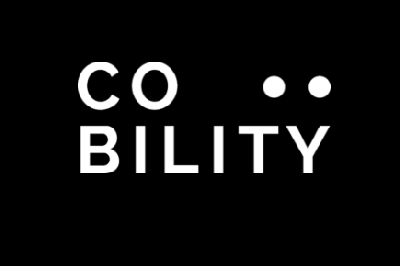
Decentralized platform for transport logistics using blockchain technology

Decentralized platform for transport logistics using blockchain technology

Decentralized platform for transport logistics using blockchain technology
ALICE Urban Freight Community The ALICE Urban Freight Community is a member-driven ALICE Community focused on digitalisation and data exchange for urban logistics. It brings together experts, practitioners and policymakers to improve interoperability, strengthen data governance, and enable more efficient, sustainable and resilient cities.
ALICE Intralogistics Community The ALICE Intralogistics Community is a member-driven ALICE Community, officially launched in January 2026, focused on the systemic role of intralogistics in Europe’s logistics and supply chains. The Community was created to move beyond treating intralogistics as a standalone topic and instead address it as an integral part of end-to-end logistics, closely connected with transport operations, supply chains, energy systems and digital infrastructure. Co-led with engaged ALICE members, notably LIMOWA, and supported by the ALICE Secretariat, the Community functions as a collaborative space, where members jointly explore challenges, share practices and develop concrete actions, solutions and business cases. Visit the public information page for more information and how to join: https://www.etp-logistics.eu/roadmaps-3-2/alice-intralogistics-community/
BoostEDIC M&L is a Digital Europe Programme action funded under the call DIGITAL-2024-CLOUD-AI-06-MOBSPACE
Dear IPIC participant, Through this group you can revisit IPIC 2026 presentations, video recordings, papers, and posters presented at IPIC 2026. If you could not attend but you would like to access the materials or recorded sessions from IPIC 2026 programme, please contact ipic@etp-alice.eu for more information How to access the recorded presentations and materials? If you are already registered in the Knowledge Platform, log in, use the “enrolment key” and click on “Follow this content” while logged in If you are not yet registered, you may create an account in the Knowledge Platform (Create account) and then follow the step explained above. To access the “enrolment key” contact ipic@etp-alice.eu. Only speakers, attendees and ALICE members have access to the materials at this stage. You may visit the FAQ or contact ipic@etp-alice.eu for any question or support you may need. Best Regards, IPIC 2026 Organization team www.pi.events
The vision of MODALSHIFT lies in the creation of a transport network and traffic management optimisation framework, trusted and valuable for local stakeholders, that bridges the data from infrastructures, logistics and mobility operators.
Join us on 23-24 October 2025 for the ALICE Logistics Innovation Summit 2025. This two-day event will bring together stakeholders from across the freight transport and logistics ecosystem to exchange knowledge, showcase innovations, explore the most pressing challenges and opportunities in the logistics sector in Europe and beyond.
ALICE Logistics Automation Automation in logistics is progressing rapidly across ports, terminals, corridors, warehouses and multimodal hubs. Europe is moving from isolated pilots towards the deployment of interoperable, safe and scalable autonomous systems across the logistics network. To support this transition, ALICE has launched Logistics Automation as a collaborative platform connecting industry, technology providers, research centres and public authorities. The objective is to enable knowledge exchange, identify common challenges, and accelerate coordinated and interoperable automation across modes and nodes. A structured Use Case Collection is being prepared and will be released shortly on the Knowledge Platform. Purpose of the group Provide a shared space to monitor automation initiatives beyond research projects. Connect work carried out across ALICE Thematic Groups (TG2, TG3, Urban Logistics). Link demonstrations and applied research with emerging EU policy frameworks (TEN-T, port strategy, CCAM, data interoperability). Create a consolidated overview of automation developments within the European logistics ecosystem. Prepare the ground for a potential ALICE position paper on logistics automation in 2026/2027. How to contribute Members can support this group by sharing information, ongoing pilots or operational experiences. Share updates, questions or materials in the discussion forum. Participate in upcoming webinars, workshops and deep-dive sessions. Use Case Collection Hub – link coming soon →